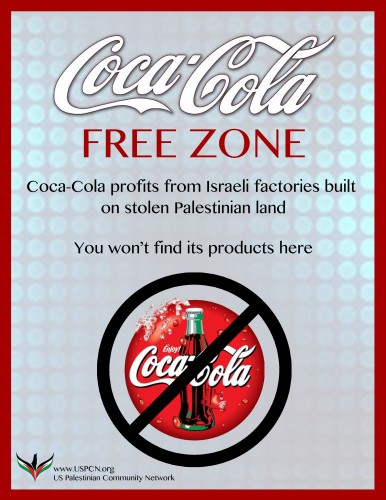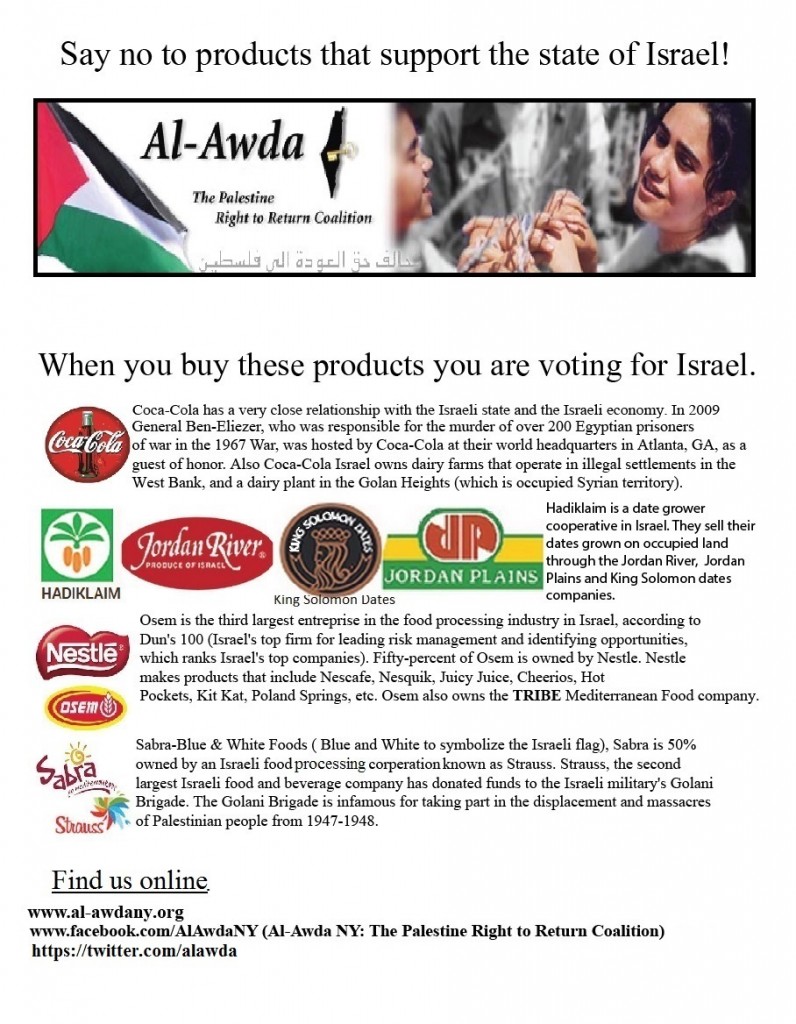Tuesday, November 15
6:30 pm – 10:00 pm
Alwan for the Arts
16 Beaver St, New York City, NY 10004
Facebook: https://www.facebook.com/events/1119245061505399/
PALESTINE: DECONSTRUCTING ZIONIST COLONIZATION – LESSONS FOR LIBERATION
FOLLOWED BY DISCUSSION ON ORGANIZING FOR PALESTINE UNDER TRUMP- ATTACKS HERE & AT HOME.
Starting TUESDAY November 15th Al-Awda-NY will Launch its Series of events that seek to deconstruct and expose Zionist Colonizing Violence- its impact and perpetrators- and how it shapes the Palestinian Liberation and Anti-Colonization Struggle.
The First in the Series is the Book Launch & Discussion: “Drawing the Kafr Qasem Massacre” By Internationally Renowned Palestinian Artist Samia Halaby.
Through Moderated Conversation and Slideshows, and in Collaboration with Alwan for the Arts, world renowned Palestinian Artist Samia Halaby will present her sixteen-year art production and research on the 1956 Massacre of Palestinian Farmers, Laborers, Women and Children by Agents of the Zionist Colonizing Project. The Discussion will be followed by a roundtable-workshop format discussion that considers alternative means of justice and accountability for ‘historic’ crimes of colonizers and related actions.
Centering Zionist Violence and Palestinian Liberation, Al-Awda-NY will follow this event with:
1. Screening of the Film on the Kufr Qassem Massacre followed by a discussion on the psychological, political and material impact of Zionist violence in Kufr Qassem- date and location TBA
2. Screening of the Film “Battle of Algiers” followed by discussion that contrasts the impact of Zionist colonizer violence against the redemptive power of revolutionary struggle, including an analysis of the Algerian revolution as a frame of reference- date and location TBA
3. Decolonizing Culture, Tatreez and Zaghareet: Deconstructing the impact of Zionist Colonization on Palestinian Culture, thought and organization. Discussion will be had during and between Tatreez lessons and Zaghareet preservation/lessons.
4. Al-Awda will continue its program through May 2017 and will announce the full list of upcoming events, activities, and partners in this series at Alwan on November 16, 2016.
The 1956 Kafr Qasem massacre was carried out by the Israeli Border Police under cover of the tripartite attack on Egypt by England, France, and Israel. Two other massacres took place during the ensuing days in the cities of Rafah and Khan Younis, where 111 and 275 Palestinian civilians, respectively, were slaughtered by Israeli troops on their way to Egypt. In Kafr Qasem, an artifice was created to provide a fig-leaf excuse for the massacring of innocent people ― a curfew announced less than a half an hour before it was implemented. Workers returning home, tired and hungry, unaware of the curfew, were shot and killed in cold blood by members of the Israeli Border Police.
Based on interviews with survivors, Samia Halaby has created a set of documentary drawings on the subject. The emotions of anger and fear leap from every page of this book, enabling the reader to bear witness to the terrible suffering endured by the inhabitants of this small Palestinian village.
About the Artist
Samia Halaby was born in Jerusalem in 1936, She is an internationally recognized painter and scholar of Palestinian art. Although based in the United States since 1951, Halaby is recognized as a pioneer of contemporary abstraction in the Arab world.
Halaby began her career in the early 1960s, shortly after graduating from Indiana University with an MFA in Painting. While teaching at the Kansas City Art Institute in 1964, she travelled to the Eastern Mediterranean as part of a faculty research grant and studied the geometric abstraction of the region’s Islamic architecture, which has continuously factored into her work. Other major influences include the Russian avant-garde, as directing ways of seeing and thinking not only within the realm of aesthetics but also as contributions to technological and social advancement.
Halaby’s work is included in the collection of the Solomon R. Guggenheim Museum of Art (New York and Abu Dhabi); Yale University Art Gallery; National Gallery of Art, Washington D.C.; Art Institute of Chicago; Cleveland Museum of Art; Institut du Monde Arabe; and the British Museum. In 2014 Booth-Clibborn Editions published the artist’s second monograph, Samia Halaby: Five Decades of Painting and Innovation. Halaby’s writings on art have appeared in Leonardo: Journal of Arts, Sciences and Technology, Jerusalem Quarterly, and Arab Studies Quarterly. Her survey Liberation Art of Palestine: Palestinian Paintings and Sculpture in the Second Half of the 20th Century (2002) is considered a seminal text of Palestinian art history.
![“Drawing The Kafr Qasem Massacre”/Palestine Under Trump Tuesday, November 15 6:30 pm – 10:00 pm Alwan for the Arts 16 Beaver St, New York City, NY 10004 Facebook: https://www.facebook.com/events/1119245061505399/ PALESTINE: DECONSTRUCTING ZIONIST COLONIZATION – LESSONS FOR LIBERATION […]](https://al-awdany.org/wp-content/uploads/2016/11/flyerNov15-620x300.jpg)

